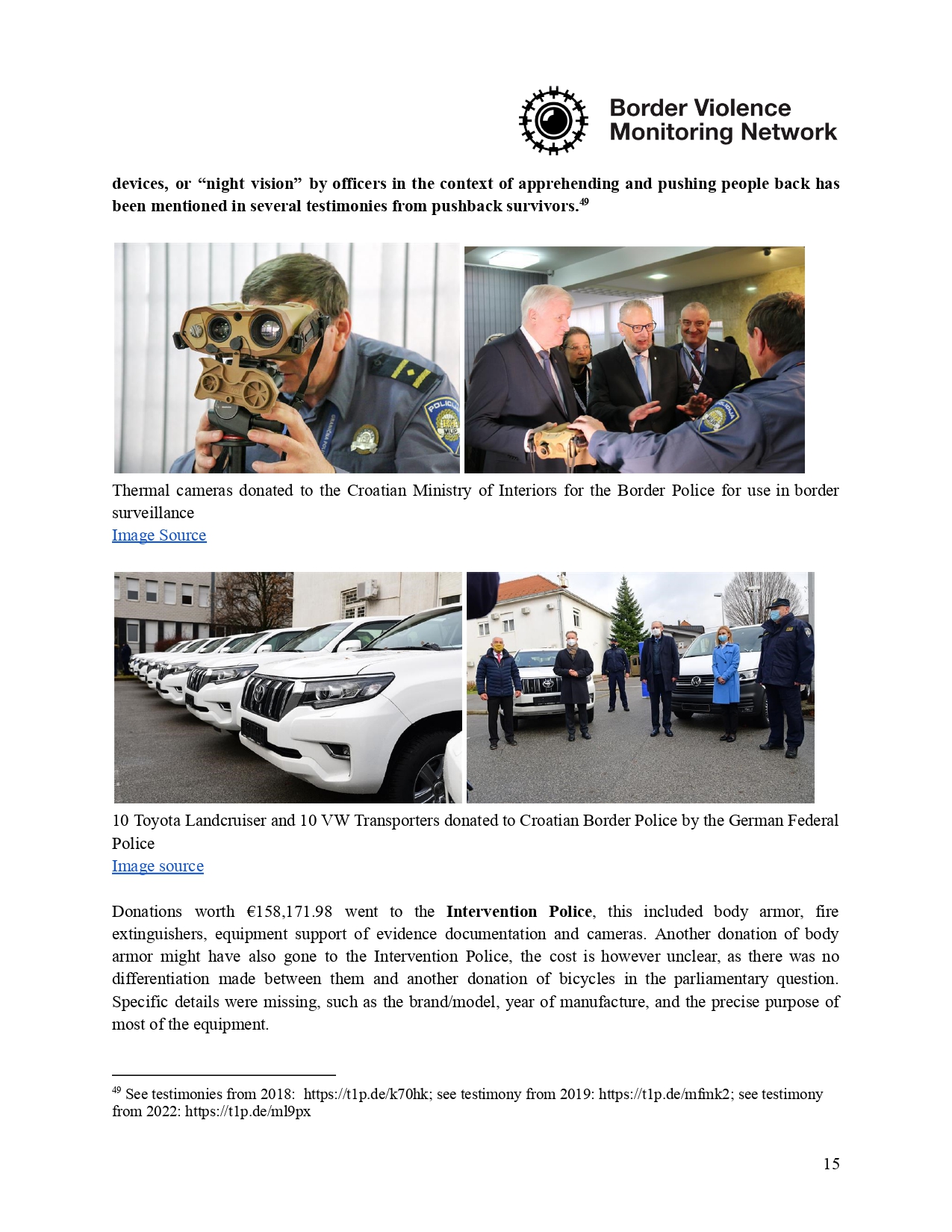This report by the Border Violence Monitoring Network (BVMN), with the support of PRO ASYL, summarizes the results of an investigation into the support of German authorities for Croatian border authorities from 2016-2021 (and for deployments of officers, until 2022). It sheds a light on donations of equipment, the deployment of officers, and further kinds of support. In addition, the organisation of the Croatian police with regard to pushback operations is discussed.
On both political and practical levels, Germany has heavily supported Croatia in border enforcement and securitization efforts. This support has continued over the last several years despite overwhelming evidence of systemic human rights violations perpetrated by Croatian police forces against people-on-the-move (POM).
From 2016 until the 1st quarter of 2021, at least 24 German officers were deployed in Croatia as liaison officers in different capacities, in addition to those working for the European Border and Coast Guard Agency (Frontex). In the same period, the total sum of the vehicle and equipment donations (including thermal cameras and other surveillance technology, as well as non-border related topics) amounted to €2,862,851.36. German institutions further conducted at least 87 trainings, official visits, or evaluations of Croatian police forces, on topics ranging from prevention, the use of police dogs, border management, and surveillance. The sum of the cost of the trainings in the period 2016 – 2021 calculated is €422,168.84.
Of particular concern is the heavy involvement and provision of equipment by German institutions to the Intervention Police, which among other sectors of the Croatian police, has been identified as a key actor in systematic pushbacks along Croatian borders. In total, the Intervention Police received €158,171.98 in equipment donations and €47,539.92 in trainings from 2016-2021. A further €321,527.70 was provided specifically to the Special Police.
The extent of the systematic violent pushbacks along the Croatian border and the structures behind them suggest that equipment provided by Germany could also be connected to pushbacks along the Croatian border that violate international law.

